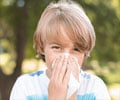Intake of sugar in the form of fructose during pregnancy causes a persistent postnatal allergic immune response leading to asthma in the developing lung.
Highlights
- Maternal sugar intake during pregnancy increases the risk of allergic inflammation and asthma in the fetus.
- Sugars, mainly in the form of fructose in sweetened beverages, soft drinks induces immune responses in the baby.
- The offspring's free sugar intake in early childhood was found to have no association with the outcomes.
Almost 9,000 mother-child pairs were analysed for associations between maternal intake of free sugars in pregnancy and allergy (defined by positive skin tests to common allergens, namely dust mite, cat and grass) and asthma at seven years of age.
Sugar Intake In Pregnancy - Is it Safe?
Data on maternal diet in pregnancy were collected by a food frequency questionnaire (FFQ) at 32 weeks gestation, covering all the main foods consumed in Britain.
The questionnaire asked about their current weekly frequency of consumption of 43 food groups and food items. More detailed questions were asked about daily consumption of a further eight basic foods (including sugar, coffee and tea).
When comparing the 20 percent of mothers with the highest sugar intake versus the 20 percent of mothers with the lowest sugar intake, there was an increased risk of 38 percent for allergy in the offspring (73 percent for allergy to two or more allergens) and 101 percent for allergic asthma. The team found no association with eczema or hay fever.
"The first step is to see whether we can replicate these findings in a different cohort of mothers and children. If we can, then we will design a trial to test whether we can prevent childhood allergy and allergic asthma by reducing the consumption of sugar by mothers during pregnancy. In the meantime, we would recommend that pregnant women follow current guidelines and avoid excessive sugar consumption."
Fructose Triggers Immune Response
Fructose, which is a major component of added sugars, and is present naturally in fruit juice and in sweetened drinks as added sucrose (ratio of fructose/glucose 50/50%) or isolated fructose, has been mooted as driving previous cross-sectional findings linking sugar-containing beverage consumption to asthma in children.
Fructose consumption, in the form of high fructose corn syrup (ratio of fructose/glucose 60/40%), increased from near 0% to near 30% of per capita consumption of refined sugars in the USA between 1970 and 2000, whereas the consumption of sucrose and glucose declined or remained constant.
The team speculate that the associations may be explained by a high maternal intake of fructose.
- Fructose also causes generation of uric acid and experimental evidence in mice suggests that uric acid may be an essential initiator and amplifier of T-helper cell type 2 (Th2) immunity and allergic inflammation.
- High fetal exposure to fructose may cause persistence of Th2 immune responses post-natally and allergic inflammation in the developing lung.
Importantly, the offspring's free sugar intake in early childhood was found to have no association with the outcomes seen in the analysis.
As the study is observational, it does not prove a causal link between maternal sugar intake and allergies or asthma. A randomised controlled trial would be needed to definitively test causality.
Reference
- Annabelle Bédard, Kate Northstone, A. John Henderson, Seif O. Shaheen, Maternal intake of sugar during pregnancy and childhood respiratory and atopic outcomes, European Respiratory Journal (2017) http://dx.doi.org/10.1183/13993003.00073-2017.
Source-Medindia
















